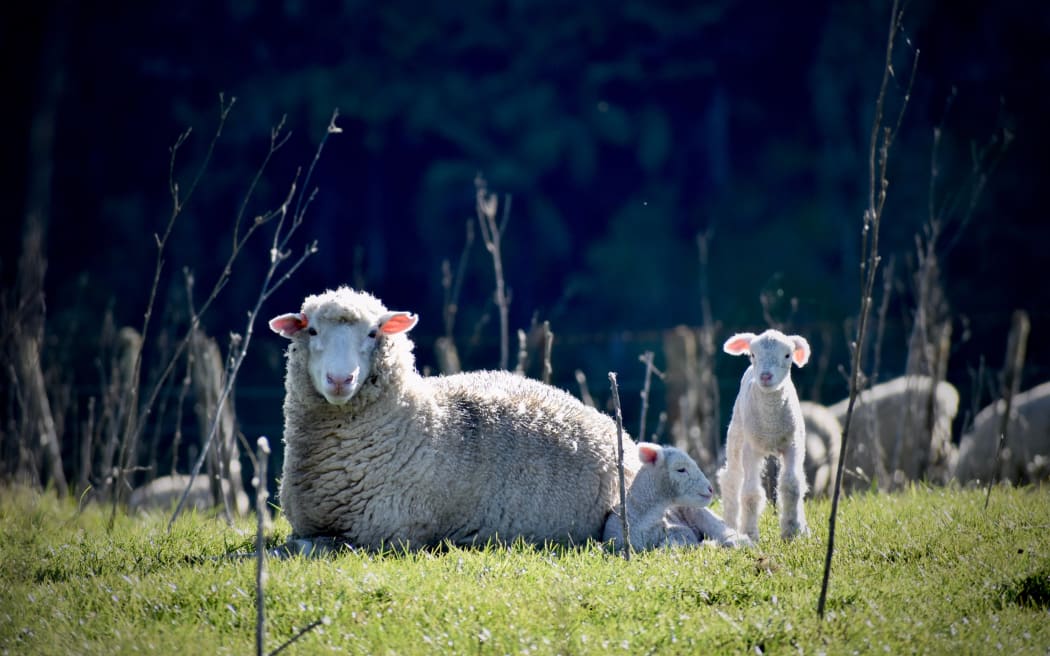
Photo: Sophie Barnes
Fruit blossom and asparagus heads are out and lambing is in full swing across the country this week.
In Northland the sun has been shining but grass growth is slow. The ground is still pretty squishy underfoot in many places but there hasn't been any more rain much to the relief of farmers. Prices at the market for store cattle are higher compared to the same time last year. The focus is on lambing and calving at the same time as cleaning up debris and repairing fences after recent floods.
The sun's also been out in Waikato and the temperature has been hovering around 18 degrees so grass is growing well. A dairy farmer in Te Araroa is getting ready to start artificial insemination in a couple of weeks. A vet has gone through the cow herd checking their condition. Pot holes and washouts are being filled and the next job will be weaning calves. Farmers say they are pleased with the local Affco freezing works as the waiting time for processing stock is minimal.
No rain has fallen this week around Pukekohe and the district's soils are now mostly dry. It is forecast for the weekend and in the meantime, some growers are irrigating newly planted seedlings.
Kiwifruit pruning is coming to an end in the Bay of Plenty. It's been a slog for some growers amid extreme weather events and staff shortages. The poor quality of some fruit has also been causing concern so future prices are unpredictable. The soil temperature is about 16 degrees - so grass is growing well. Calving has just about finished and milk prices are looking good.
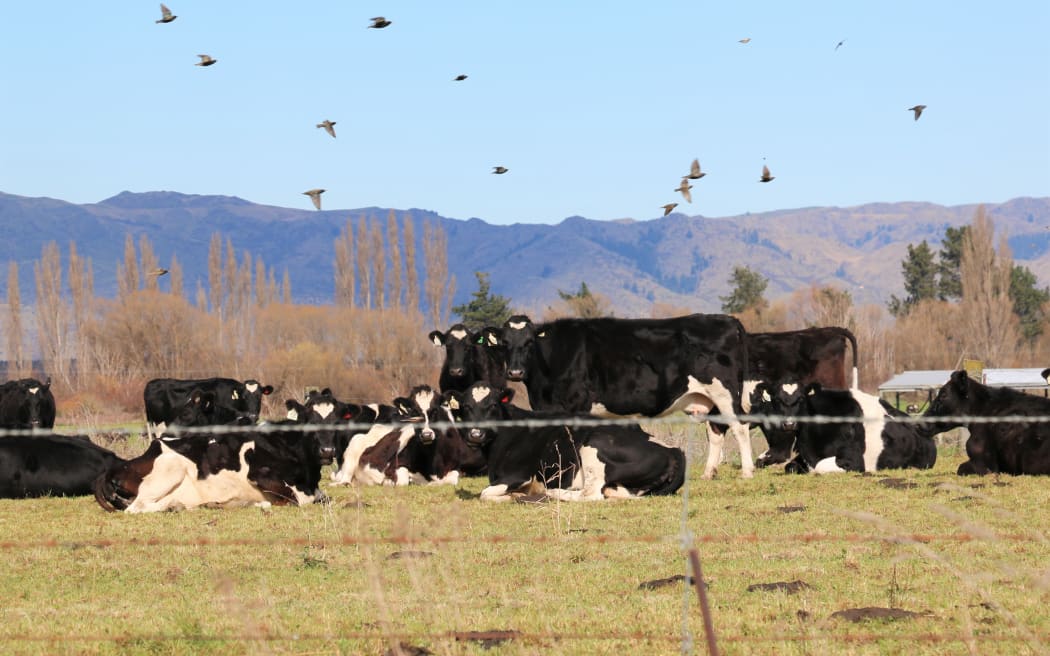
Photo: Cosmo Kentish-Barnes
About 40 percent of the King Country flock has started to lamb. Mortality rates are pretty low with few southerlies. Fewer triplets are expected this year due to the dry autumn. Farms that lamb late are vaccinating ewes and setting them on paddocks. Local cattle are in hot demand, Manawatu and Hawkes Bay farmers are keen to buy two year old cattle beasts. Ewe hoggets are going under the shearing blades.
In Taranaki temperatures have also been mild. A deluge of about 50 millimetres of rain in one hour gave the soil yet another drenching but as the soil is porous it wasn't too much of a problem. The region has not been getting as many frosts as it used to and there's plenty of early spring growth. The demand for Friesian heifers has been good - especially from offshore markets such as Malaysia and China. With international borders freeing up more staff are arriving and rolling their sleeves up on farms.
In the Gisborne region lambing is going well in mild conditions. Scanning rates have been excellent with some over 200 percent. Feed growth has been good considering winter has just finished. Tractors are out working pastures for early vegetable crops. Calving for beef breeders is due to start in a week or two. Prices for cattle and lambs are strong.
In Hawkes Bay quite a few vineyards are seeing bud burst in early grape varieties such as Chardonnay. A few mild frosts haven't caused any concerns so far. The water table is pretty high ... and grape growers say they have had enough rain. It's difficult to get tractors around vines with so much dampness. Maintenance is underway and trellises and irrigation systems are being updated. The annual Hawkes Bay wine auction is a couple of weeks away and the proceeds go to the local Cranford Hospice.
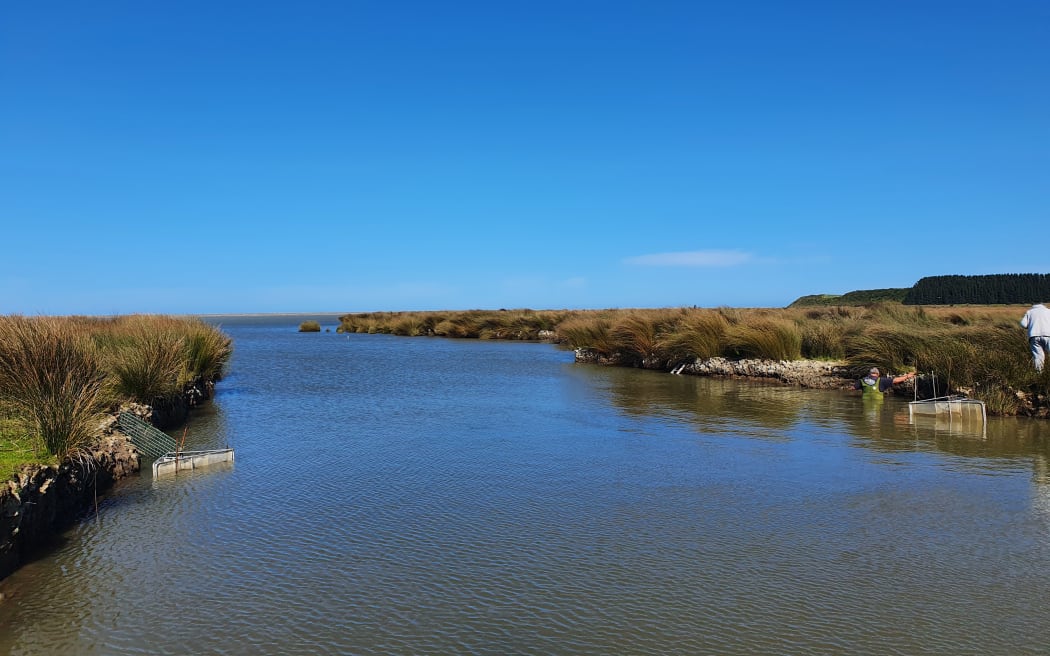
Whitebaiting stands at a river in South Wairarapa Photo: RNZ/Sally Round
The first day of the whitebaiting season this week was one out of the box for a retired Wairarapa dairy farmer. He and his mate came away with 20 pounds and enjoyed a patty or two for breakfast as they waited to fill their nets.
In Horowhenua growers and farmers are smiling about the warm weather which is nicely drying out paddocks so broccoli and other veggies can be harvested. Asparagus is poking its head above the ground and the first harvest is expected in a couple of weeks so teams of pickers are starting to arrive in the region. Asparagus is one the last real seasonal vegetables as it is dormant over winter then harvested from September to Christmas. Plants live for up to 12 years. The first strawberry plants are flowering and should start to bear fruit in October. Market gardeners and dairy farmers near Levin have found it tough going with such a wet winter.
Near Appleby in Nelson everyone's still cleaning up after a river broke its bank in recent flooding. One farmer had to get in his canoe to get to the chook house but thankfully it's now dried out. The saturation has taken its toll on fruit trees. Some tips have died as their roots were too waterlogged. Despite this plum and apricot trees are blossoming and early Braeburn apples and pears are budding. An orchardist has brought in bee hives to help pollinate the blossoms. Copper and oil is being sprayed on the trees to prevent black spot and mites. Peony plants are growing steadily and are about 20 centimetres high this week, but the flooding has also killed a few. And with the ground drying out, mowing between trees and plants has been able to start.
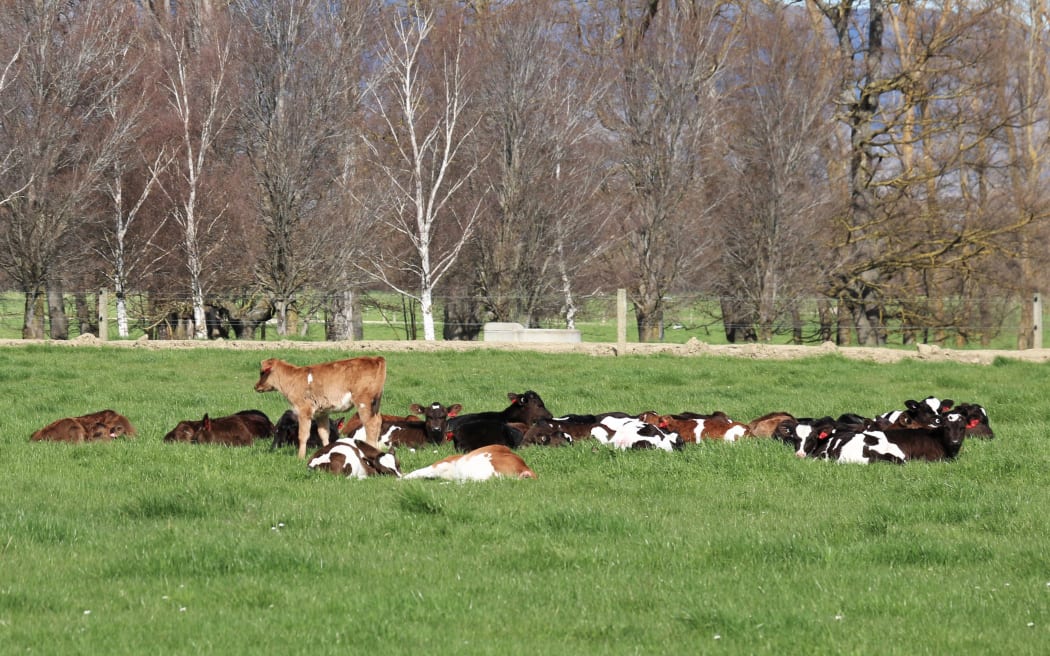
Photo: Cosmo Kentish-Barnes
On the West Coast it's been a grey and rather damp week. Farmers say it's typical spring weather. Calving is going well. The government held a robust meeting on the coast to discuss a draft plan for sharing resources across the Buller, Grey and Westland districts. Bobby calf prices are described as not too bad and freezing works are managing the supply of stock well.
Grass growth has really kicked away this week in Canterbury. Even the lawn needs another mow! Some pasture is still too wet for tractors so planting of seed crops such as barley is running about two weeks late this year. As paddocks slowly dry out, farmers are expecting to have to do some long hours over the next month to catch up.
In high country territory by Lake Wakatipu in Central Otago about 11,000 merino ewes are being shorn prior to lambing which starts in October. Farmers say the wool is in pretty good condition despite plenty of rain and snow last month. It's quite mild and grass is growing slowly however more snow and cold weather is forecast for this weekend. A couple of hundred native trees are being planted near the lake after a stand of old macrocarpa trees was chopped down.
Southland has seen frosty and crisp mornings followed by sunny skies this week. The forecast is for rain this weekend but farmers say they aren't complaining as grass is starting to grow - albeit slowly. The ground is still pretty moist in many places and some are waiting for their paddocks dry out a little more so they can put fertiliser on the ground prior to spring planting. Lambing has just started on a few farms and the rest are expected to get busy within a couple of weeks. Locals are 'flat stick' with calving as well and describe their days as 'extremely busy' with staff shortages and winter illnesses taking their toll.
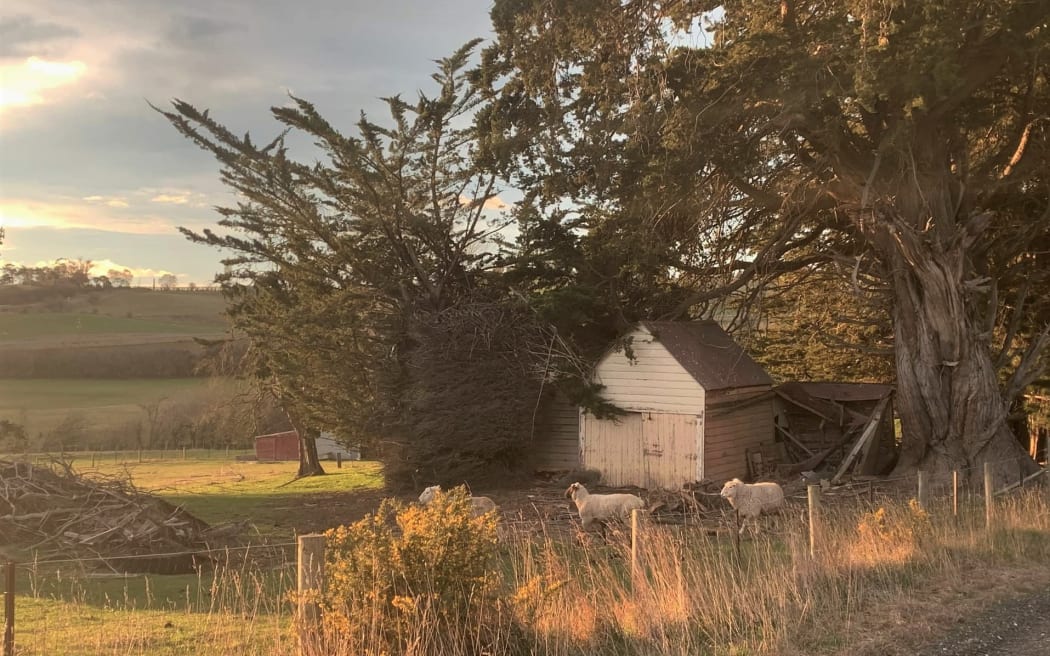
Photo: Michael Godfrey

